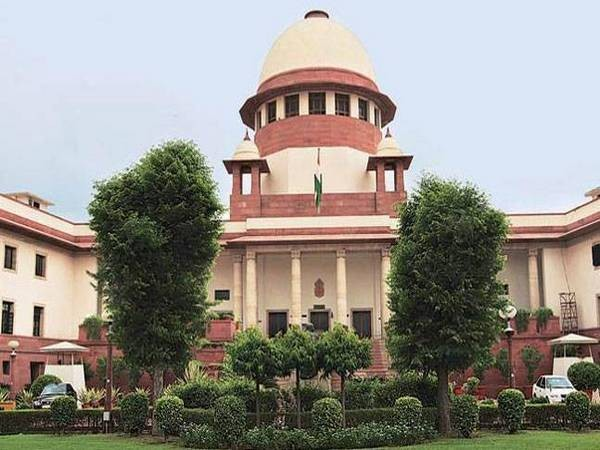SC indicates recalling extension of limitation period from October 1

New Delhi [India], September 23 (ANI): The Supreme Court on Thursday said that it will pass an order to lift its earlier order by which it had extended the statutory period for filing petitions in view of the COVID-19 second wave and indicated that period of limitation can start from October 1, 2021.
A Bench of Chief Justice of India NV Ramana, Justice L Nageswara Rao and Justice Surya Kant observed that as the COVID-19 cases has come down and indicated that a buffer period of 90 days will be given with effect from October 1.
The Bench told Attorney General of India KK Venugopal, "I think we can lift the order now. We can now say that period of extension will be upto October 1."
The top court on May 23, 2020, had passed an order directing that the period of limitation in all proceedings, irrespective of the limitation prescribed under the general law or special laws is extended from March 15, 2020, till further orders on account of the COVID-19 pandemic.
By its order on March 8, 2021, the Apex Court while noticing that the country was returning to normalcy, the extension of limitation brought to an end.
However, on April 27 this year, the Apex Court while taking note of the onset of the second COVID-19 wave had relaxed the statutory period for filing petitions, including the election petitions, under the Representation of the People Act, 1951. It means that anybody can still file a petition challenging the election of a returned candidate and as per procedure, the poll panel is required to preserve electronic voting machines (EVMs) and Voter verifiable paper audit trail (VVPAT) machines, having evidentiary value, to put forth its views in judicial proceedings.
During the hearing, the Attorney General agreed to the suggestion of starting a period of limitation and said that normalcy has now returned and there are no containment zones in the country to his knowledge.
Senior advocate Vikas Singh, appearing for the Election Commission of India, contended that only 45 days should be given for election petitions after the lifting of limitation extension, as it is the period prescribed under the Representation of Peoples Act.
Singh further said by March 8, 2021 order a period of 90 days was given with effect from March 15 for filings cases, now instead of 90 days only 45 days should be given for election petitions.
Earlier, Election Commission had approached the top court alleging that EVMs and VVPAT machines used in the assembly elections of six states are lying unused as they are preserved due to an order extending the limitation period for filing pleas and need to be released.
It was submitted that a large number of Electronic Voting Machines (EVMs) and Voter Verified Paper Audit Trail machines (VVPATs) are still being preserved and need to be released. It sought that a timeline be fixed for filing election petitions relating to assembly polls of Assam, Kerala, Delhi, Puducherry, Tamil Nadu and West Bengal.
Contending that these machines would be used in the upcoming elections, the poll panel has said, "We have to maintain these EVMs and VVPAT machines and hearing is necessary as elections in states like Uttar Pradesh, Uttarakhand and Punjab are coming up."
"The poll panel is seeking appropriate directions from this court fixing a timeline for filing of Election Petitions in the States/Union Territories of Assam, Kerala, NCT of Delhi, Puducherry, Tamil Nadu and West Bengal, as in absence of the same, all EVMs used in these States/Union Territories are currently stuck or unable to be used/deployed for upcoming/future elections due to the order dated April 27, 2021, passed by this court," the plea has said.
It has said all the EVMs and VVPATs belonging to the Election Commission of India that were used in recently held assembly elections are blocked and cannot be used in future/upcoming elections an as a result of the apex court's order, the EC is unable to use a substantial number of EVMs. (ANI)

 Yahoo Movies
Yahoo Movies 